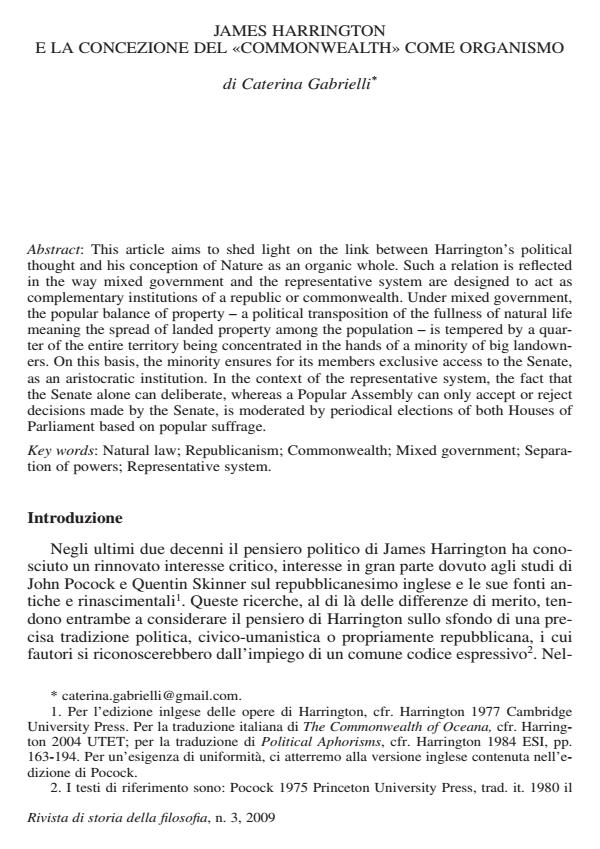James Harrington e la concezione del "commonweath" come organismo
Journal title RIVISTA DI STORIA DELLA FILOSOFIA
Author/s Caterina Gabrielli
Publishing Year 2009 Issue 2009/3 Language Italian
Pages 22 P. 469-490 File size 620 KB
DOI 10.3280/SF2009-003002
DOI is like a bar code for intellectual property: to have more infomation
click here
Below, you can see the article first page
If you want to buy this article in PDF format, you can do it, following the instructions to buy download credits

FrancoAngeli is member of Publishers International Linking Association, Inc (PILA), a not-for-profit association which run the CrossRef service enabling links to and from online scholarly content.
James Harrington e la concezione del "commonweath" come organismo - This article aims to shed light on the link between Harrington’s political thought and his conception of Nature as an organic whole. Such a relation is reflected in the way mixed government and the representative system are designed to act as complementary institutions of a republic or commonwealth. Under mixed government, the popular balance of property - a political transposition of the fullness of natural life meaning the spread of landed property among the population - is tempered by a quarter of the entire territory being concentrated in the hands of a minority of big landowners. On this basis, the minority ensures for its members exclusive access to the Senate, as an aristocratic institution. In the context of the representative system, the fact that the Senate alone can deliberate, whereas a Popular Assembly can only accept or reject decisions made by the Senate, is moderated by periodical elections of both Houses of Parliament based on popular suffrage.
Key words: Natural law; Republicanism; Commonwealth; Mixed government; Separation of powers; Representative system.
Caterina Gabrielli, James Harrington e la concezione del "commonweath" come organismo in "RIVISTA DI STORIA DELLA FILOSOFIA" 3/2009, pp 469-490, DOI: 10.3280/SF2009-003002